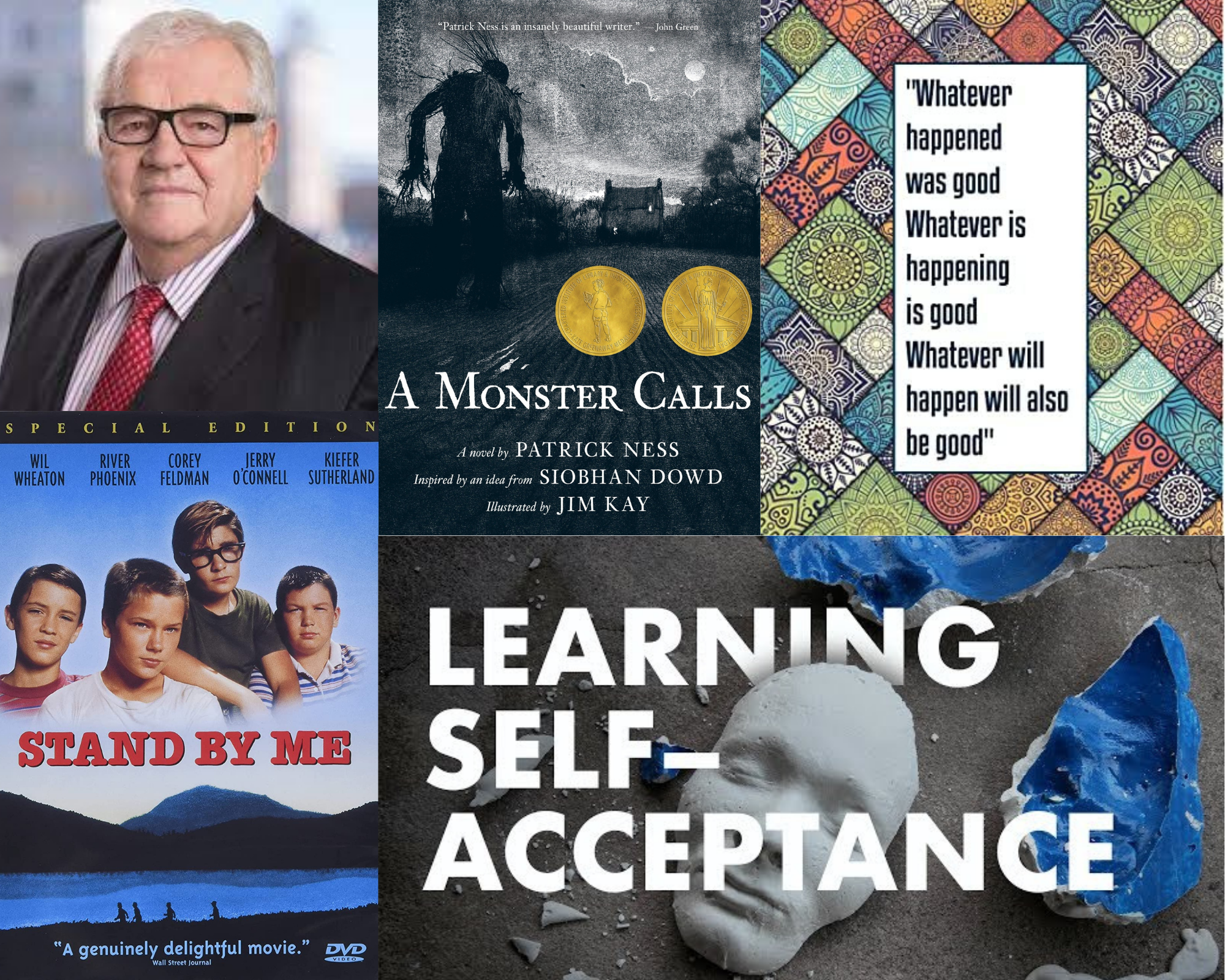Sunday Supplement #62 (July 17th, 2022)
Below is another Sunday Supplement with a quote worth sharing, a book worth reading, a movie worth watching, brainfood worth consuming, and a spiritual passage worth pondering.
I hope you take something away from these recommendations that enriches your week ahead!
Quote of the Week:
“Accept yourself, love yourself, and keep moving forward. If you want to fly, you have to give up what weighs you down.”
– Roy T. Bennett
Book of the Week:
A Monster Calls – Patrick Ness
British author and activist Siobhan Dowd originally came up with the idea for A Monster Calls.
Conor struggles to cope with the consequences of his mother’s illness and is visited by a monster each night he dreams.
As the boy experiences isolation and loneliness from his peers and his family in the wake of his mother’s illness, the monster wants Conor’s truth.
The monster promises to tell three true stories in return for Conor’s true story about the nightmare he’s afraid to recall.
Dowd had terminal cancer when she came up with the idea and worked with editor Denise Johnstone-Burt at Walker Books to develop the book.
Patrick Ness also worked with Johnstone-Burt and was brought on to write the novel after Dowd’s passing.
The book won the Carnegie Medal and was adapted into a critically successful movie of the same name.
A Monster Calls is considered a young adult novel but is well written with themes that resonate with all ages.
Movie of the Week:
I haven’t featured Stephen King in a Sunday Supplement in some time. He’s one of my favorite authors, and I believe some of the best films in Cinema have been adapted from his works.
Stand by Me is a 1986 film adapted from King’s novella The Body. The story recounts a childhood adventure of four friends who attempt to find the missing body of a local boy.
The companionship of the four boys makes the movie. Each has their struggles and home and in the community.
A local gang of bad boys rival the boys’ search and want to claim fame from the news by discovering the body first.
Stand by Me received an Academy Award nomination for Best Adapted Screenplay. It also received two Golden Globes nominations for Best Drama Motion Picture and Best Director.
Director Rob Reiner claimed it was his favorite film, and Stephen King said it was the best adaptation of one of his works.
There is much to appreciate from the film, and it’s one worth putting on your watch list if you haven’t seen it.
Brainfood of the Week:
Learn Self Acceptance Self Confidence By Letting Go Of Ego & Being Yourself
This is the first time I’ve featured The Futur on a Sunday Supplement. Their YouTube page is dedicated to helping people make a living doing what they love.
The Futur focuses on five main topics: Mindset, Marketing, Sales & Negotiations, Pricing & Motivation.
In this video, Chris Do discusses how most people carry around a flash mask, constructed from insecurity and ego, hoping people will accept them.
Do explains how everyone already sees you for who you are and chooses whether to accept or reject you.
We shouldn’t concern ourselves with how others view us because it’s outside our control and takes a tremendous amount of our energy.
Do tells a story about how he viewed himself and tried to control how others viewed him. He eventually let go and focused on allowing others to connect with him or not.
The Futur’s video is an excellent dissection of the ego and how we can genuinely connect with others if we learn to accept ourselves.
Closing Spiritual Passage:
“Whatever happened was good. Whatever is happening is good. Whatever will happen will also be good.”
– Bhagavad Gita
This Bhagavad Gita passage reminds me how we can always find the good if we look for it. There can be terrible experiences, but there can always be a way to move forward.
I reflect on the more challenging experiences of my life and the more difficult experiences of others and find that a change in perspective allows growth.
Accepting any situation gives us the power to take action and move forward. We might not be able to change bad experiences, but we can learn from them and look for the good around us.
I try to remember this Bhagavad Gita passage when I feel lost. Knowing that I can choose how I want to move forward helps me find the good in the past, present, and future.
Accept yourself, find the good, and have a blessed week ahead!
Comments closed
